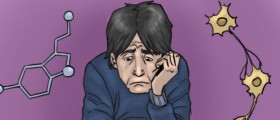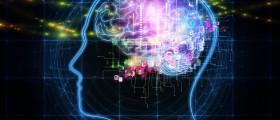
Drug abuse is a condition which mainly affects the brain, leading to an addiction due to a disruption of normal chemical processes taking place in the area. In time, these disruptions result in a need for compulsive drug use, being the main sign of an addiction.
Drug Addiction and the Brain
The brainstem is the part of this organ which deals with many of our vital functions such as breathing, blood distribution and digestion. Also, this part of our brain connects the brain with the spinal cord allowing it to control countless of our bodily movements and processes. Drugs affect this part of the brain and lead to problems with all of the above mentioned operations.
Next, the limbic system is also affected by drug abuse. This part of the brain is in charge of our emotions and the good feelings we are exposed to whenever we are doing something we like or something that is good for us. Drugs interfere with this delicate system and create a reward sensation every time you abuse a substance. Thus, addicts give their best to feel the pleasure and satisfaction of their addictions over and over again, increasing the doses as their tolerance increases.
Finally, drugs mingle with the cerebral cortex, being a part of our brain resembling a mushroom, taking up to ¾ of our entire brain. It consists of lobes, being different sections of this brain part, in charge of numerous processes such as thinking, sensing, tasting, planning, hearing etc. Thus, drugs have an adverse effect on all of these aspects of our existence.
In order for the brain to be functional and connected to the rest of our body, it needs neurons, which receive and send messages. These messages travel through neurotransmitters, moving from one neuron to the other, delivering and collecting information.
Whenever a neurotransmitter approaches a neuron, it connects to the receptor which receives chemicals and allows messages to be sent or received.
Finally, once the message is delivered and the jobs of neurotransmitters done, they are taken back into their initial positions by transporters.
The Effect of Drugs on the Brain
Since drugs are chemicals as well, they either interfere with the normal processes of the brain or they imitate other chemicals, changing the way people function. Some of these changes may be temporary, stopping once a person stops abusing drugs. Unfortunately, some damage done by drugs can be permanent.
Marijuana and heroin, for example, bind to the receptors, pretending to be real bodily chemicals, sending abnormal messages to the brain. Amphetamines, on the other hand, create an abundance of natural neurotransmitters, stopping the recycling of the brain chemicals, leading to overload in brain information. Finally, many other drugs rely on the dopamine and other “feelgood” hormones in the body, triggering euphoric reactions on every abuse, leading to repeated consumption of drugs due to the pursuit of this pleasant effect.

















Your thoughts on this
Loading...